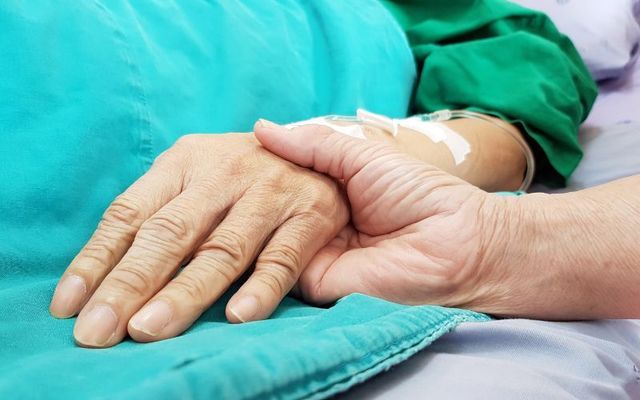The Irish Catholic Bishops' Conference has voiced its opposition to a report recommending the legalization of euthanasia or assisted suicide for terminally ill patients.
In a pastoral letter entitled 'Freedom to Live Fully, Until Death Comes,' the Irish Catholic Bishops’ Conference seeks to "inform people of faith and goodwill who wish to protect and support human life with dignity and compassion, especially in the last weeks of terminal illness."
The letter comes after the Joint Committee on Assisted Dying published its final report in March, in which it makes a number of recommendations, primarily that the Irish Government introduce legislation allowing for assisted dying, in certain restricted circumstances.
Among the circumstances are that assisted dying should be limited to people aged 18 or over; a person diagnosed with a disease, illness, or medical condition that is both incurable and irreversible and or advanced, progressive, and will cause death and or expected to cause death within six months (or, in the case of a person with a neurodegenerative disease, illness or condition, within 12 months); and or causing suffering to the person that cannot be relieved in a manner that the person finds tolerable.
The Committee recommended that the right to conscientious objection of all doctors and health workers directly involved in the provision of assisted dying should be protected in law.
It also recommended that palliative care and the operation of assisted dying should operate completely separately and independently of each other, and that funding for assisted dying and palliative care be separate and distinct from one another, provided for in separate votes in the Department of Health budget.
Further, it recommended that where capacity is in doubt, a functional test for decision-making capacity should be part of the assessment for eligibility for assisted dying.
In its letter published on June 24, the Irish Catholic Bishops' Conference rejects the Committee's recommendations, stating that "the deliberate taking of human life, especially by those whose vocation is to care for it, undermines a fundamental principle of civilised society, namely that no person can lawfully take the life of another."
The bishops noted that there are restrictions stating who has access to assisted dying but expressed "little confidence" that the restrictions would offer patients any real protection.
"Taking into account what has happened in many other jurisdictions, and indeed, what is already happening in Ireland with regard to the law on abortion, we believe that it would be only a matter of time before proposals would be on the table again to extend the availability of assisted suicide to those in our society who are most vulnerable, including people with intellectual disabilities," the bishops said in their pastoral letter.
The letter added that many dying people can find human and spiritual growth in their last weeks of life, allowing "old hurts" to be healed.
"Faced with the reality of their own mortality, they can and do come to understand themselves better, and to experience the love of family members and friends. This can be a time when old hurts are healed and people find inner peace.
"This process is supported through palliative and pastoral care, which places the focus on the needs of the whole person."
The letter called on Catholics to support "nurses and doctors who stand for life, and called on palliative services to be more widely available in hospitals, hospices, and communities.




Comments